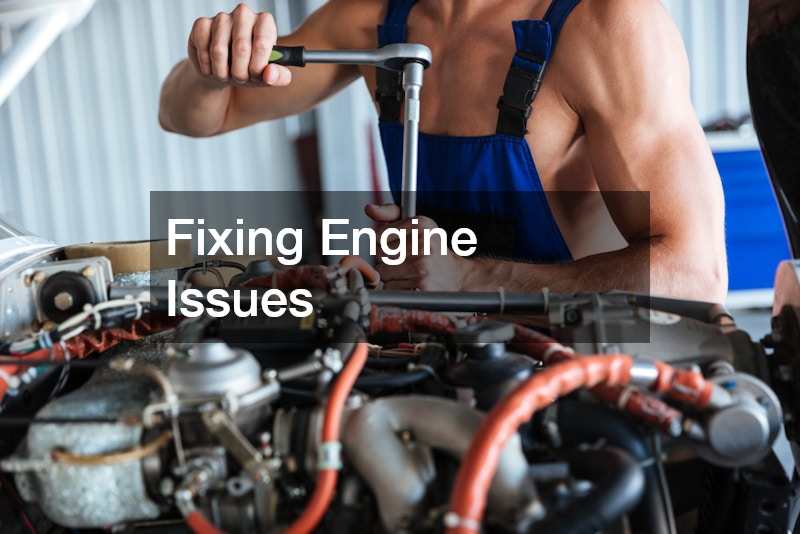
Becoming a successful car mechanic requires a combination of technical skills, practical experience, and constant learning. As automobiles evolve, mechanics must adapt to new technologies and methodologies to provide reliable service. This article outlines essential skills and attributes for mechanics, along with the significance of being a 24 7 car mechanic, available to address client emergencies at any time. It also delves into understanding different repair techniques, navigating insurance protocols, and managing a repair shop efficiently. Alongside technical prowess, developing good customer service and business acumen is crucial for long-term success in the automotive industry. Additionally, with the growing integration of hybrid and electric vehicles, modern mechanics must expand their expertise to include diagnostics and servicing of advanced systems. Embracing digital tools and software for diagnostics and inventory management has also become essential. This article offers insights not just for aspiring mechanics, but also for seasoned professionals aiming to stay competitive in a rapidly changing automotive landscape.
Brake System Skills
Brake systems are a critical component of vehicle safety, requiring mechanics to possess specialized brake repair service skills. Understanding the complexities of different braking systems, from disc and drum to anti-lock systems, is imperative. A mechanic’s expertise ensures reliable performance and helps avoid accidents, which is especially crucial in the duties of a car mechanic who might be called upon at any hour to address brake failures.
The intricacies of brake repair service require attention to detail and a thorough understanding of vehicle schematics. Mechanics must be adept at diagnosing problems through noise, feel, and visual inspection. This level of understanding separates professional service providers from novices, making it critical for any mechanic aspiring to operate effectively as a 24 7 car mechanic.
To excel, mechanics must keep abreast of the latest advancements in braking technologies. Regular training and certifications help mechanics update their skills and stay competitive. Providing thorough brake repair service not only enhances safety but also builds a strong client base, essential for those operating as a dependable 24 7 car mechanic.
Dent Fixing Basics

Paintless dent repair has revolutionized the way minor vehicle damage is addressed, offering a cost-effective and time-efficient solution. Mastering this technique requires precision, patience, and practice to work metal back into its original shape without damaging the vehicle’s paint. Such skills enhance the attractiveness of a 24 7 car mechanic, enabling them to provide quick and durable solutions on demand.
The process of paintless dent repair involves a detailed understanding of car body panels and the ability to use specialized tools. Through strategic pressure application and methodical work, a skilled mechanic can restore a vehicle’s appearance. This expertise is particularly valuable for a 24 7 car mechanic, ensuring swift service that minimizes downtime for vehicle owners.
Success in paintless dent repair requires continuous learning and adaptation to varying vehicle models and materials. Engaging in workshops and gaining certifications can heighten a mechanic’s reputation. Such capabilities not only broaden service offerings but also establish trust among customers seeking reliable 24 7 car mechanic services.
Insurance Know-How
Understanding auto insurance protocols is essential for mechanics to streamline the repair process for clients. A well-informed mechanic can guide customers in navigating their insurance claims, expediting service delivery. In the role of a car mechanic, this knowledge ensures efficiency and builds client confidence during stressful situations such as post-accident repairs.
Mechanics often act as intermediaries between the client and the auto insurance agent, ensuring clarity in communication. They must provide accurate repair estimates and assist in documentation, making the insurance process seamless. A 24 7 car mechanic with adept insurance know-how can offer comprehensive service beyond repairs, enhancing overall customer satisfaction.
To maintain this expertise, mechanics should engage in regular updates on insurance policies and industry practices. Developing relationships with insurance agents can further facilitate smooth operations, reinforcing a mechanic’s role as a trusted advisor and service provider. For the car mechanic looking to offer all-encompassing service, insurance know-how is invaluable.
Fixing Engine Issues

Engine problems can be among the most complicated and stress-inducing issues a car owner faces. A successful car mechanic must be adept at diagnosing and resolving these concerns, as they form a cornerstone of car repairs. Given the complexity of modern engines, having a mechanic available as a 24 7 car mechanic is invaluable when urgent repairs are necessary.
The depth of knowledge required in engine repair means a mechanic must be familiar with an array of systems including combustion, fuel injection, and cooling systems. Utilizing diagnostic tools effectively can pinpoint issues quickly and accurately. As a car mechanic, the ability to provide immediate and precise troubleshooting can prevent more severe and costly damage.
To achieve competence in engine repair, ongoing education through courses and certification programs is indispensable. Keeping up with technological advancements in the automotive industry helps mechanics remain competitive and effective in their service. As a trusted car mechanic, offering comprehensive car repairs positions one as a go-to resource for vehicle owners needing reliable help.
Moving Big Machines
At times, automotive work extends beyond cars to involve heavy equipment hauling. This aspect requires mechanics to understand the logistics and operational specifics of larger machinery. A mechanic functioning as a 24 7 car mechanic who can manage such tasks is a valuable asset in the industry.
Handling heavy equipment hauling involves understanding weight regulations, securing loads properly, and assessing transportation routes for safety. A mechanic skilled in this area provides an essential service that supports both automotive repair shops and industries dependant on transporting large equipment. This ability complements the role of a 24 7 car mechanic by broadening the range of services offered.
To ensure competence, mechanics must adhere to rigid safety standards and undergo relevant training. As the industry evolves, continuous education in heavy equipment hauling is essential for those offering diverse logistical solutions. Being a versatile 24 7 car mechanic requires an understanding of these broader service needs, ensuring the ability to respond to an array of client requirements.
Emergency Pickups

In the realm of roadside assistance, the role of a towing company cannot be understated. Whether it’s due to breakdowns or accidents, a towing company serves as an essential lifeline for stranded drivers. The service also intersects with the responsibilities of a car mechanic, who may require towing services to bring vehicles to their shop for repairs.
Running a successful towing company involves more than just moving vehicles; it requires a commitment to customer service, understanding driver needs, and ensuring timely responses. Training in both vehicle recovery techniques and customer communication is crucial. As a 24 7 car mechanic, collaborating with a reliable towing company provides an integrated service experience for clients.
Mechanics with a firm grasp of towing operations can expedite service delivery and increase customer trust. Building this understanding can involve certifications in towing practices and partnerships with skilled towing firms. The value added to a 24 7 car mechanic’s offerings is significant, providing clients with seamless service from breakdown to repair completion.
Garage Door Setup
Mechanics operating their own repair shops should not overlook the importance of a proper custom garage door setup. Besides practicality, a well-designed door can enhance the workshop’s aesthetics and safety. For a 24 7 car mechanic, quick and easy access to vehicles at all hours necessitates a reliable door system.
Investing in custom garage door solutions requires evaluating factors such as insulation, durability, and security. Mechanics should seek doors that facilitate smooth workflow while offering protection against elements and unauthorized access. A car mechanic benefits from reduced time in accessing vehicles, optimizing service provision.
Collaboration with professionals to customize garage door installations can lead to enhanced efficiency and peace of mind. Updating garage doors to incorporate the latest technologies can further support a mechanic’s operations, contributing to long-term success and sustainability. These considerations are vital for a car mechanic managing a full-service automotive repair facility.
Durable Floor Ideas

An automotive workshop’s floor takes a lot of abuse, from spills to heavy foot traffic, making an epoxy floor coating an excellent choice. Mechanics who maintain a clean, safe, and functional workspace are better positioned to offer efficient car mechanic services.
Epoxy floor coating offers benefits such as durability, ease of cleaning, and enhanced aesthetics. Selecting high-quality materials is crucial for withstanding the daily grind of vehicle repairs. The practicality of such an investment is particularly important for mechanics who operate continuously, like a car mechanic, during busy shop hours.
Implementing an epoxy floor coating requires consideration of color, texture, and thickness to fit specific operational needs. Engaging with professional installation services can offer insights into maximizing the floor’s lifespan and performance. A well-maintained work area adds to the professionalism of a car mechanic’s shop, attracting clientele and fostering efficient service delivery.
Fluid Waste Rules
Among the environmental responsibilities of a mechanic, proper used oil disposal is a critical task. Mismanaged waste can lead to severe environmental damage and legal repercussions. As a 24 7 car mechanic, adhering to waste disposal regulations is key to sustainable practice and community trust.
Mechanics tasked with used oil disposal must be aware of local regulations and consult with certified waste haulers for proper recycling or disposal. Ensuring that practices meet environmental standards preserves a workshop’s reputation. For a 24 7 car mechanic, assisting customers with proper disposal extends care beyond immediate repair needs.
Staying informed about legislation changes and adopting best practices in waste management is crucial for any sustainable workshop. Partnering with environmentally conscious waste service providers can ensure compliance while promoting ‘green’ business operations. Those who effectively manage used oil disposal position themselves as responsible leaders in the car mechanic service space.
Lot and Drive Care
The external environment surrounding an automotive repair shop plays a role in the overall client experience. Applying a professional paving service to the driveway and lot can make a significant difference in accessibility and safety. A well-maintained exterior also reflects the professionalism of a 24 7 car mechanic’s workshop.
Paving service encompasses preparation, design, and installation, considering factors like weather resilience and traffic load. Collaborating with experienced pavers ensures the selection of suitable materials and practices for a lasting surface. A car mechanic benefits from the streamlined entry and exit of vehicles, reducing turnaround time.
Keeping up with periodic maintenance and engaging in proactive problem resolution can extend the life of paved areas. Aesthetically pleasing and functionally sound paving projects attract clients, positively impacting a workshop’s reputation. For any car mechanic, the investment in quality paving is crucial for both operational efficiency and client satisfaction.
Ultimately, what it takes to be a successful car mechanic is a blend of technical skills, business acumen, and excellent customer service. Mechanics must not only fix cars but also understand components like brake repair services, provide invaluable paintless dent repair, and collaborate effectively with an auto insurance agent. They need to efficiently manage broader mechanical issues, from car repairs involving heavy equipment hauling to offering reliable towing company assistance in emergencies.
Setting up a well-equipped workshop, complete with custom garage doors and durable epoxy floor coatings, enhances efficiency and safety. It is equally important for mechanics to adhere to environmental and legal standards, such as proper used oil disposal, to build community trust and ensure sustainability. Offering a comprehensive service package is made complete by maintaining a professional exterior through expert paving services.
Being a 24 7 car mechanic requires commitment to continuous learning and adaptability as automotive technology advances. Success lies in the ability to offer thorough and high-quality services at any hour, meeting the needs of modern vehicle owners swiftly and effectively. Embracing these elements not only builds a robust career in the automotive industry but also establishes a legacy of reliability and excellence.
Additionally, cultivating strong communication skills and maintaining transparent pricing fosters customer loyalty and long-term relationships. Mechanics who go the extra mile—by explaining repairs in understandable terms or offering preventive maintenance tips—set themselves apart in a competitive field. Staying updated on electric and hybrid vehicle systems also ensures continued relevance. By uniting craftsmanship with care, today’s car mechanics can thrive in an ever-evolving landscape.
